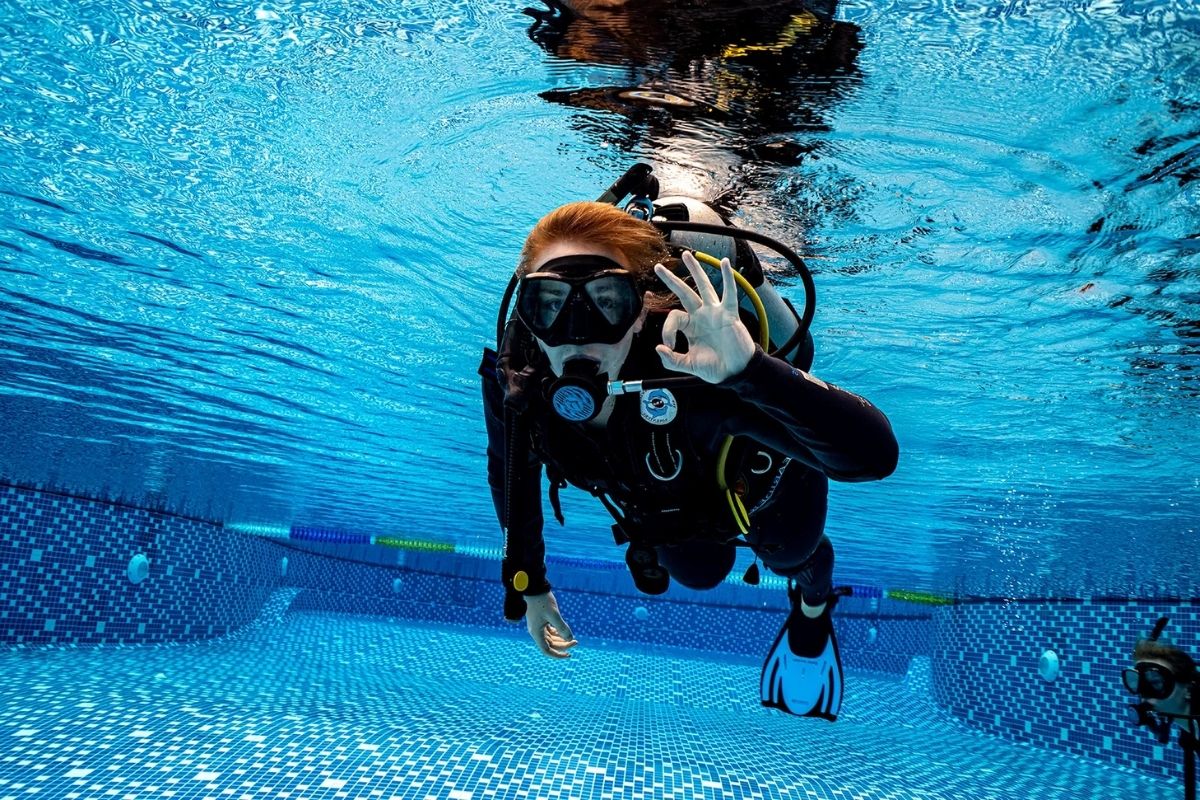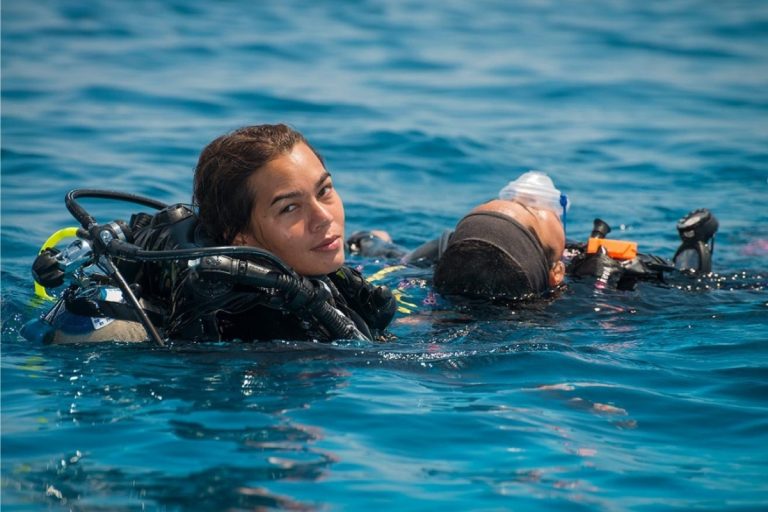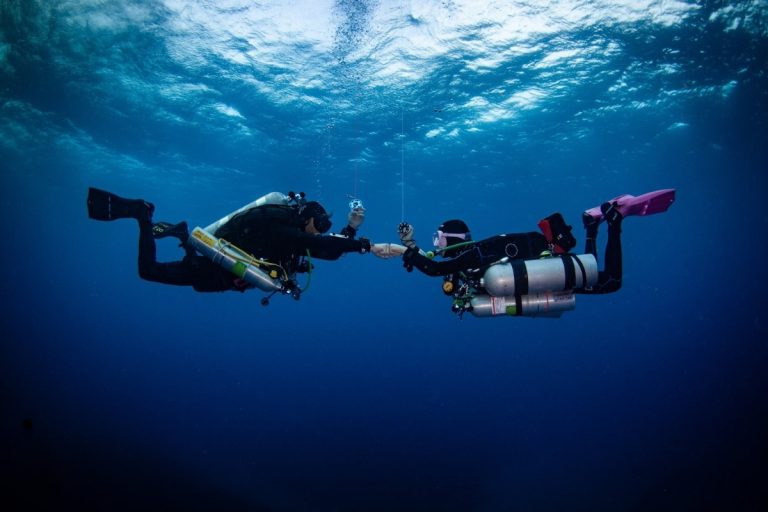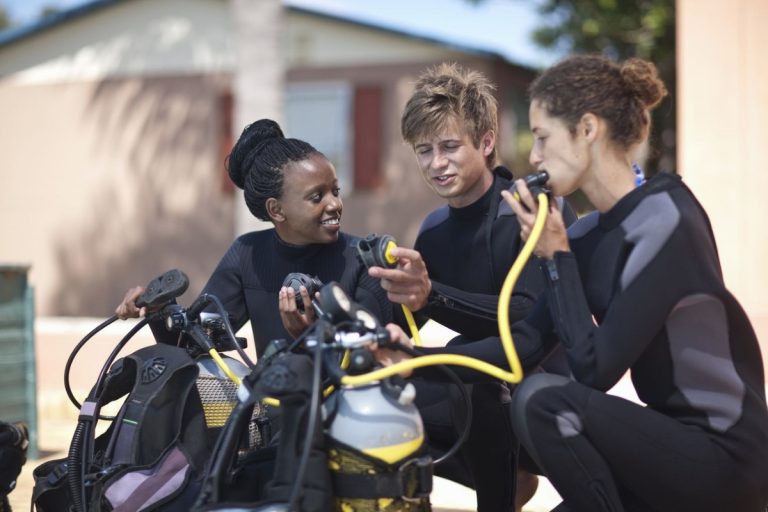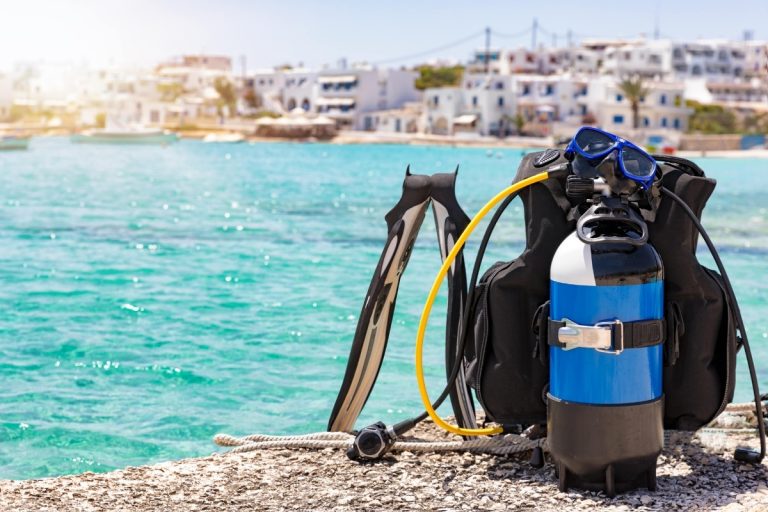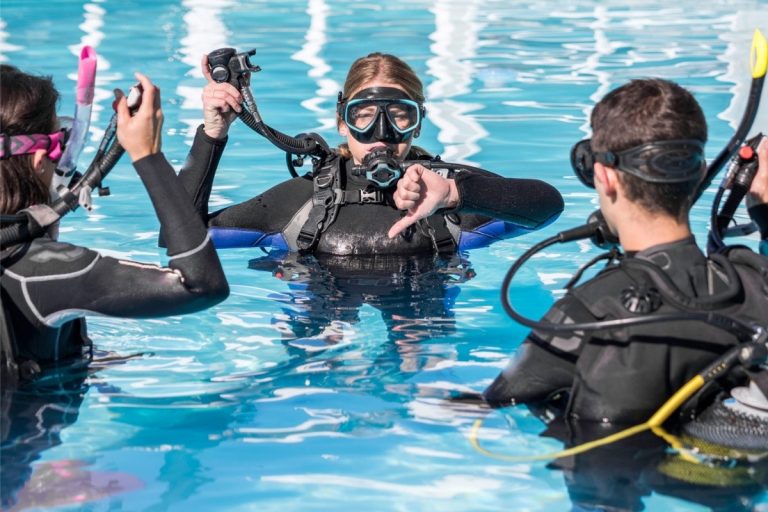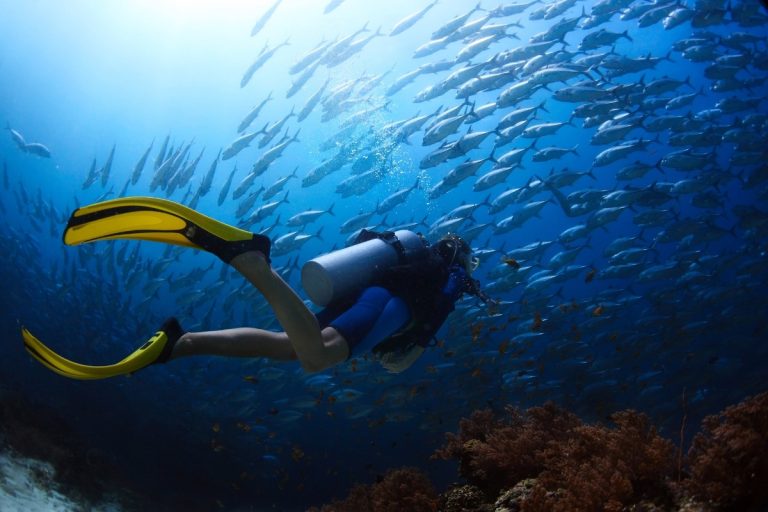Overview of the Open Water Pool Session
Your journey into the underwater world begins with the pool session, a crucial component of the PADI Open Water Diver course that sets the foundation for all your future diving adventures. This controlled environment serves as your training ground where you’ll master essential skills before venturing into open water.
The pool session represents the bridge between theoretical knowledge and practical application. Here, you’ll transform from someone who has studied diving concepts into a diver who can confidently handle equipment and perform essential underwater skills. This transition happens gradually under the watchful eye of certified instructors who ensure your safety and progress.
Purpose of the Open Water Pool Session
The primary goal of your pool session is to create a safe learning environment where you can practice fundamental diving skills without the variables of open water conditions. In this controlled setting, you’ll build muscle memory for critical procedures and develop the confidence needed for open water diving.
During these sessions, you’ll practice skills repeatedly until they become second nature. The pool provides clear water, consistent temperature, and a shallow depth that allows for easy surface access if needed.
Structure of the Course
Your pool training follows a systematic progression designed to build skills incrementally. Each session introduces new concepts while reinforcing previously learned techniques. The structured approach ensures that no essential skill is overlooked and that you develop competency at each level before advancing.
The sessions typically begin with basic equipment familiarization and progress through increasingly complex skills. This methodical approach helps prevent overwhelm and ensures solid skill development throughout your training.
Importance of Certification
Completing your pool sessions successfully is a mandatory step toward earning your diving certification. These sessions demonstrate your ability to handle equipment properly and perform essential safety procedures. Without mastering these pool-based skills, you cannot progress to open water training.
Your instructor will assess your performance during pool sessions, ensuring you meet the required standards before advancing. This assessment process protects both your safety and the integrity of the certification program.
Transitioning from Pool to Open Water
The skills you master in the pool directly translate to open water diving, though you’ll need to adapt to new environmental conditions. The pool sessions prepare you for variables like reduced visibility, currents, and marine life encounters that you’ll experience in natural diving environments.
Your instructor will help you understand how pool skills apply in open water situations. This preparation reduces anxiety and increases confidence when you make the transition to natural diving environments.
Safety Considerations
Pool sessions prioritize safety through controlled conditions and constant supervision. Emergency equipment remains readily accessible, and instructors maintain close proximity to all students throughout training. The shallow water allows for immediate surface access if any issues arise.
Safety protocols established during pool training carry forward into all future diving activities. These sessions instill safety-conscious habits that become integral to your diving practice.
Course Structure and Components
The Open Water course combines multiple learning components to create well-rounded, competent divers. Understanding the course prerequisites and medical requirements helps you prepare adequately for the training ahead. Each component serves a specific purpose in developing your diving knowledge and skills.
The comprehensive structure ensures that you receive both theoretical understanding and practical experience. This dual approach creates divers who not only know what to do but understand why specific procedures are necessary for safe diving.
Self-Study Requirements
Your learning begins before you enter the pool through self-paced study using digital materials and instructional videos. This theoretical foundation covers diving physics, physiology, equipment, and safety procedures that you’ll apply during practical sessions.
The self-study component includes quizzes and knowledge reviews that reinforce key concepts. Completing this portion thoroughly prepares you for more effective pool and open water training sessions.
Confined Water Training
Pool sessions, also known as confined water training, provide your first hands-on experience with diving equipment in a controlled environment. These sessions focus on skill development, equipment familiarity, and building confidence underwater.
You’ll practice essential skills like mask clearing, regulator recovery, and buoyancy control repeatedly until they become automatic responses. This repetition builds the muscle memory crucial for safe diving.
Open Water Dives
Following successful pool completion, you’ll progress to open water dives where you’ll apply learned skills in natural environments. These dives take place under instructor supervision and gradually increase in depth and complexity.
Open water training introduces you to real diving conditions while maintaining safety through careful supervision and controlled dive sites. These experiences prepare you for independent diving after certification.
Key Skills Taught
Your pool training covers fundamental skills including equipment assembly, underwater communication, buoyancy control, and emergency procedures. Each skill builds upon previous learning and contributes to overall diving competency.
Skills practice includes both normal procedures and emergency responses. This comprehensive approach ensures you can handle routine diving situations as well as unexpected challenges that may arise.
Emergency Procedures
Emergency skill training forms a critical component of your pool sessions. You’ll learn and practice procedures for equipment malfunctions, out-of-air situations, and other potential underwater emergencies.
These emergency skills receive particular emphasis because they can be life-saving in real diving situations. Your instructor will ensure you can perform these procedures confidently before certifying your completion.
Learning Outcomes
Your pool sessions are designed to achieve specific learning outcomes that prepare you for safe, enjoyable diving experiences. These outcomes focus on skill mastery, equipment understanding, and confidence building that will serve you throughout your diving career.
The comprehensive nature of these learning outcomes ensures that you graduate from pool training with both practical skills and theoretical understanding necessary for independent diving.
Skill Mastery and Confidence
By the end of your pool sessions, you’ll demonstrate mastery of fundamental diving skills and the confidence to apply them underwater. This combination of competency and confidence forms the foundation for all future diving activities.
Skill mastery involves performing techniques correctly and consistently, while confidence develops through repeated successful practice. Both elements are essential for safe, enjoyable diving experiences.
Understanding Dive Equipment
Pool training provides hands-on experience with diving equipment, teaching you proper assembly, use, and maintenance procedures. This equipment knowledge extends beyond basic operation to include troubleshooting common issues and recognizing potential problems.
Understanding your equipment thoroughly increases both safety and enjoyment during diving activities. This knowledge also helps you make informed decisions about equipment purchases and maintenance as you continue diving.
Basic Navigation Skills
Your pool training introduces fundamental underwater navigation techniques using natural references and compass navigation. These skills become essential when diving in open water environments where navigation challenges increase significantly.
Navigation training in the pool provides a foundation that you’ll build upon during open water dives. Mastering these basics in controlled conditions prepares you for more complex navigation situations.
Using Dive Computers
Modern diving relies heavily on dive computers for depth, time, and decompression information. Your pool training includes instruction on dive computer operation, interpretation, and proper use during diving activities.
Understanding dive computer functions and limitations ensures you can use this technology effectively for safe diving. This knowledge becomes increasingly important as you progress to more advanced diving activities.
Compiling a Dive Log
Proper dive logging begins during your training and continues throughout your diving career. Pool sessions teach you how to record dive information accurately and why maintaining detailed logs benefits your ongoing diving development.
Dive logging skills developed during training establish good habits that enhance safety and provide valuable records of your diving experiences and skill development over time.
Medical Readiness for Diving
Medical fitness plays a crucial role in diving safety, and your pool training includes assessment of medical readiness for diving activities. Understanding medical requirements and limitations helps ensure safe participation in diving training and future diving activities.
The medical assessment process protects both individual divers and the diving community by identifying conditions that might increase diving risks or require special considerations during training.
Assessing Medical Conditions
The medical assessment process begins with comprehensive questionnaires that identify potential health conditions affecting diving safety. These assessments cover cardiovascular, respiratory, neurological, and other medical conditions that might impact diving activities.
Honest completion of medical assessments ensures appropriate medical clearance and helps instructors provide suitable training modifications if needed. This process protects your safety throughout the training program.
Importance of Medical Clearance
Medical clearance from qualified healthcare providers may be required for certain medical conditions or medications. This clearance process ensures that diving activities are appropriate for your individual health status and circumstances.
Obtaining proper medical clearance when required demonstrates commitment to safe diving practices and protects both personal safety and training program integrity.
Common Medical Concerns
Certain medical conditions require special consideration for diving activities, including heart conditions, respiratory issues, diabetes, and medications that might affect diving safety. Understanding these concerns helps you make informed decisions about diving participation.
Working with healthcare providers familiar with diving medicine ensures appropriate evaluation and recommendations for diving activities. This specialized knowledge helps address diving-specific medical considerations effectively.
Dealing with Medical Issues During Courses
If medical issues arise during training, instructors are prepared to provide appropriate responses and modifications to ensure continued safety. This might include temporary training suspension, medical evaluation, or training modifications to accommodate specific needs.
Open communication about medical concerns during training helps instructors provide appropriate support and ensures that training continues safely and effectively for all participants.
Recommendations for Participants
Maintaining good physical fitness enhances both safety and enjoyment during diving training and activities. Regular exercise, proper hydration, and adequate rest contribute to successful training outcomes and ongoing diving safety.
Following medical recommendations and maintaining honest communication about health status throughout training helps ensure safe, successful completion of your diving certification program.
Safety Protocols
Safety protocols form the backbone of all diving training activities, with comprehensive risk management strategies implemented throughout your pool sessions. These protocols protect participants while creating effective learning environments for skill development.
Understanding and following established safety protocols develops habits that extend far beyond training into all future diving activities, creating safer divers and safer diving communities.
Risk Management Strategies
Comprehensive risk management begins with thorough planning and continues through careful execution of all training activities. These strategies include equipment checks, environmental assessments, and emergency preparedness measures implemented before each session.
Risk management also involves continuous monitoring during activities and immediate response capabilities for any issues that might arise. This proactive approach minimizes risks while maximizing learning opportunities.
Instructor Supervision and Support
Qualified instructors provide constant supervision and support throughout all pool training activities. This supervision includes direct observation, immediate feedback, and assistance when needed to ensure safe skill development.
Instructor support extends beyond basic supervision to include encouragement, individual coaching, and adaptation of training methods to meet individual learning needs and capabilities.
Emergency Equipment Availability
All training sessions include readily accessible emergency equipment and established emergency response procedures. This equipment includes first aid supplies, oxygen, and communication devices necessary for effective emergency response.
Emergency equipment maintenance and regular testing ensure readiness when needed. Training staff maintain current certifications in emergency response procedures and equipment operation.
Diving in Safe Conditions
Pool training takes place in controlled conditions that minimize environmental risks while providing effective learning opportunities. These conditions include appropriate water temperature, visibility, and depth for safe skill development.
Safe diving conditions also include appropriate instructor-to-student ratios, proper equipment function, and environmental factors that support effective learning and skill development.
Managing Equipment Issues
Equipment malfunction procedures are practiced regularly during training to prepare students for real-world situations. These procedures include recognition of equipment problems, appropriate responses, and emergency procedures when equipment fails.
Proper equipment maintenance and pre-dive checks help prevent equipment issues, while emergency procedures ensure safe responses when problems occur despite preventive measures.
Diving Without Certification
While diving without proper certification is technically possible in some locations, it presents significant safety and legal risks that make certification essential for safe diving participation. Understanding these risks helps emphasize the importance of proper training and certification.
Reputable diving operations require proper certification for safety and liability reasons, making certification practically necessary for accessing most diving opportunities worldwide.
Legal Aspects of Diving
Diving certification requirements vary by location, with some areas having legal requirements for certification while others rely on industry standards and operator policies. Understanding local requirements helps ensure compliance with applicable regulations.
Legal liability issues also affect uncertified divers, with potential consequences for accidents or incidents that occur during diving activities. Proper certification helps establish appropriate training and competency levels.
Risks of Uncertified Diving
Uncertified diving presents significant safety risks due to lack of proper training, skill development, and safety knowledge. These risks include equipment misuse, poor emergency response, and inadequate understanding of diving physiology and safety procedures.
The complexity of diving safety requires comprehensive training that cannot be adequately covered through informal instruction or brief orientations. Proper certification ensures thorough preparation for diving activities.
How Dive Centers Handle Non-Certified Divers
Reputable dive centers typically require proof of certification before providing diving services or equipment rental. This policy protects both the dive center and customers by ensuring appropriate training levels for diving activities.
Some dive centers offer supervised diving experiences for non-certified individuals, but these are limited in scope and depth compared to certified diving opportunities.
Alternatives to Certification: Discover Scuba Dive
Discover Scuba Dive programs provide introductory diving experiences for non-certified individuals under direct instructor supervision. These programs offer limited diving opportunities while maintaining safety through close supervision and shallow depth limits.
While Discover Scuba experiences can provide enjoyable introductions to diving, they do not replace the comprehensive training and certification necessary for independent diving activities.
Encouragement for Certification
The investment in proper diving certification pays dividends through enhanced safety, increased diving opportunities, and greater enjoyment of diving activities. Certification opens doors to diving locations and experiences worldwide while providing essential safety knowledge and skills.
Certified divers also contribute to safer diving communities through proper training, skill development, and adherence to established safety practices and procedures.
Duration and Commitment
Understanding the time commitment required for Open Water certification helps you plan effectively for successful course completion. The duration varies based on individual learning pace, scheduling flexibility, and course format options.
Proper time management and commitment to the learning process contribute significantly to successful certification outcomes and long-term diving safety and enjoyment.
Time Spent on Self-Study
Self-study components typically require 8-12 hours of dedicated time for thorough completion, though individual learning speeds vary significantly. This time investment includes reading materials, watching videos, and completing knowledge reviews and quizzes.
Effective self-study involves active engagement with materials rather than passive reading. Taking notes, reviewing difficult concepts, and asking questions during instructor sessions enhance learning outcomes.
Duration of Pool Sessions
Pool training sessions typically span 4-6 hours of pool time, usually divided across multiple sessions to allow skill development and practice time. Session length depends on class size, individual progress, and specific training requirements.
Multiple shorter sessions often prove more effective than single long sessions, allowing time for skill practice and concept absorption between training periods.
Length of Open Water Dives
Open water training involves four dives, each typically lasting 20-45 minutes depending on conditions, skill practice requirements, and individual air consumption rates. Total open water training time includes surface intervals and skill practice between dives.
Open water training usually requires 1-2 full days, depending on dive site logistics, weather conditions, and group size. Planning for adequate time ensures thorough skill practice and assessment.
Balancing Course with Other Activities
Successful course completion requires balancing training commitments with work, family, and other obligations. Planning training schedules in advance helps ensure adequate time for both learning and practice.
Flexible scheduling options offered by many training centers help accommodate various schedule constraints while maintaining training quality and safety standards.
Recommendations for Scheduling
Scheduling training sessions with adequate time between components allows for knowledge absorption and skill practice. Rushing through training components can compromise learning outcomes and safety preparation.
Planning for potential weather delays or rescheduling needs helps ensure course completion within reasonable timeframes while maintaining training quality and safety standards.
Continuing Education and Advanced Skills
Your Open Water certification represents the beginning of your diving education journey rather than the end. Continuing education options provide pathways for skill development, specialty training, and advanced certification levels that enhance both safety and enjoyment.
Understanding available continuing education opportunities helps you plan your diving development and set goals for ongoing skill improvement and diving experiences.
Overview of Advanced Courses
Advanced Open Water courses provide additional training in specialty areas like deep diving, navigation, night diving, and underwater photography. These courses expand your diving capabilities while maintaining focus on safety and proper technique.
Advanced training builds upon Open Water foundations while introducing new skills and diving environments. This progression approach ensures solid skill development at each level.
Specialty Courses Available
Specialty courses cover specific diving interests and environments, including wreck diving, underwater photography, marine biology, and technical diving disciplines. These courses provide focused training in areas of particular interest or diving goals.
Specialty training enhances both safety and enjoyment by providing specific knowledge and skills for particular diving activities or environments.
Importance of Continuing Education
Ongoing education maintains and improves diving skills while introducing new techniques and safety procedures. Regular training helps prevent skill degradation and keeps divers current with evolving safety standards and techniques.
Continuing education also provides opportunities to dive with experienced instructors and other divers, enhancing learning through shared experiences and knowledge exchange.
Pathways to Advanced Certification
Professional diving certifications provide pathways for those interested in diving careers or advanced diving activities. These programs require significant commitment but offer rewarding opportunities for diving involvement and career development.
Advanced certification pathways include rescue diving, dive leadership, and instructor development programs that provide progressively advanced training and responsibilities.
Engaging with the Diving Community
Active participation in diving communities provides ongoing learning opportunities, diving partnerships, and support for continued diving development. Local diving clubs, online communities, and diving events offer connection opportunities with other divers.
Community engagement also provides access to diving opportunities, equipment advice, and ongoing support for diving activities and skill development throughout your diving career.
Frequently Asked Questions
What is the purpose of the Open Water Pool Session?
The purpose of the Open Water Pool Session is to create a safe learning environment where students can practice fundamental diving skills without the variables of open water conditions.
What skills are taught during the pool sessions?
Skills taught include equipment assembly, underwater communication, buoyancy control, emergency procedures, and basic navigation techniques.
Why is certification important in diving?
Certification is important because it ensures that divers have mastered essential skills and safety procedures, enabling them to dive safely in open water.
How long do pool sessions typically last?
Pool training sessions typically span 4-6 hours, often divided across multiple sessions for effective skill development.
What are the medical readiness requirements for diving?
Participants must complete a medical assessment to identify conditions that may affect diving safety, and medical clearance may be required for certain conditions.
Embarking on Your Diving Journey
Completing your Open Water Pool Session is a pivotal step in your diving journey, laying the groundwork for safe and enjoyable experiences in open water. Mastering the skills learned in this controlled environment will enhance your confidence and ensure you are well-prepared for the adventures that await beneath the waves.
